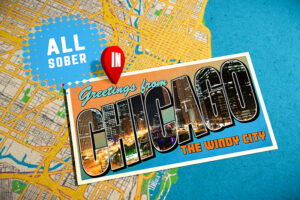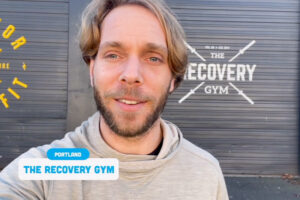Turn the Page: Journaling Your Way Through Recovery
You're starting a new chapter, so pick up a pen! Journaling doesn't have to be a chore or a bore, and you may be surprised by how much it helps you untangle your knots

Writing is hard. But it’s not as hard as recovering from addiction. The writing part, though, can make the recovering part easier to process, and both will give you great satisfaction if you stick with them.
Writing for an audience of one — journaling — can be an excellent coping method in recovery, and you don’t have to overthink it. It can be as simple as putting whatever thoughts, feelings and ideas that flicker across your mind into a notepad or word processor. But it can also be much more than that. However you do it, journaling is about creating a safe, private place where you can think, process and learn to be vulnerable.
Being mindful of your mental health is essential to addiction recovery, and we know it can be tough for those struggling with this whole process. Journaling can benefit you in a number of ways, but most of them come back to this: A journal is an outlet, a confidante, a place to ruminate or reevaluate or vent, and it can be a great friend to your mental well-being.
How Do I Start? What Do I Write About?
When considering if journaling is a worthwhile coping method for you, it can be challenging to figure out, well, where to start. How about this: Find yourself a journal that feels comfortable. You can have fun with it. It’s your journal, your space, your domain, where you’re free of judgment from others, so find one you like to look at and flip open whenever you feel like it. Once you have your journal or notepad (or document file or note-taking app), you can decide what you’d like to write about.
Remember, this is your creative space to write about whatever you think and feel, your brain’s own little studio. A few ideas you might explore to get started:
- Your daily emotions
- Updates on how your recovery journey is going
- Events that took place today
- Past events you’re still working through
- Daily affirmations
- Symptom tracking
- Recovery goals or, really, any goals
- Reminders to your current self
- Letters to your future self
- Tips you’ve discovered for a sober lifestyle
Or — journaling doesn’t always have to be writing. You can include pretty much anything that fits in there. If you have a photo that brings happy memories, you can stick it into your journal as a reminder, and maybe jot down an entry about that time.
There are no right or wrong ways to flow when creating a place for your brain to relax on paper. You might thread in some mindless doodles, lyrics, poems and quotes. While these snippets might seem like they lack structure, they promote reflection and overall well-being. Journaling is an individual activity, so you make the rules about how you want to express yourself most fully and authentically, and what your creative process will be.
In Recovery, Journaling Works. How?
Journaling can be a powerful tool in addiction recovery, and its mental health benefits have been studied in a number of different contexts.
Often, those struggling with addiction also have co-occurring mental health disorders that can sometimes make recovery seem unmanageable. Journaling can help those with mental health disorders — in recovery or not — in a few ways:
- Reducing stress
- Helping you cope with depression
- Decreasing anxiety
- Helping you differentiate between negative and positive thinking
The University of Rochester Medical Center has published a few helpful explorations of how journaling can boost wellness in anyone. It is just as essential to have a healthy mind as a healthy body in recovery, and journaling can be a great tool for achieving this.
The most important thing to remember is to be consistent. Find a time that works best and stick with it, even if just for a few minutes each day.
Writing Exercise! Visualizing Your Thoughts and Feelings
In recovery, it can feel like your mind is swirling with a thousand different thoughts — positive, negative, confusing, pointless.
Journaling can provide you with a structured creative outlet to help you get all those thoughts and feelings down. Once they’re on the page, the chaos feels like something a little more organized, a touch more manageable, and that can be therapeutic. It’s literally not just in your head! You’re not so overwhelmed.
This type of journaling can also help combat negative or intrusive thoughts and emotions. Try this: Have a debate-like conversation with yourself. Grab two different colors of pen or pencil. Write down some of the negative, ambivalent or clouded feelings or thoughts you may have in one color. Then, take the other color and address those feelings, turning them over in your head, viewing them through different lenses.
This can help you visualize how unrealistic (or at least unproductive) some of your negative thoughts are and teach you how to cope with these feelings when you’re alone. Community is vital to recovery, but it’s important to keep your head up when you’re solo, too. And even if this exercise does nothing for you at the moment, you can bring these thoughts to your counselor or support group later.
Any coping method can be an important part of recovery, and each can provide different benefits to you. Journaling is but one — but it’s one of the most common for a reason. You can scrub your brain and see your problems down there on the page, not looking so intimidating any more. You can get imaginative and dream big, or at least allow yourself some words of hope and encouragement.
You can look back in a week, a month or a year and read how far you’ve come.
More Lifestyle
The Definitive Guide to Sober Travel
Vacations shouldn't be nerve-racking, but in recovery, it's not always that simple. We asked three sober travel pros how to make your trips fun — and more fulfilling than ever.
Sure-Bet Sober Date Ideas
Ready to get back out there? Sober dating isn't so hard. But here are a few pointers anyway, to help you find your groove.
Sobriety Roundtable: What's Your Favorite Sober Activity?
From roller derby to CrossFit and dog fostering to splurging on Mexican, nine sober folks shared what they do for fun and fulfillment. Get some ideas for your own Dry January or longer-term sobriety!
The Joy of Baking (Sober)
Two months sober, Annie Zimmerman decided to make cookies. Now, her hobby turned passion yields fulfillment, connection and delicious soberversary cakes. Read the interview!
Now Elite NFL Players, They First Tackled Addiction | News Roundup
All Sober compiles the best of the latest headlines. Here's your addiction and recovery news for the week of Feb. 19, 2024!
All Sober in Chicago
A great town for recovery, come sun, rain or snow! Check out our video guide to the Windy City's best sober options for bars, bottle shops — and even an arcade with vintage games.
All Sober in New York
The Big Apple truly has it all — including a sober bar with a "witchy vibe" and an array of enchanting non-alc cocktails. Take a peek in our video guide to the sober city!
All Sober in Portland
Oregon's cultural capital may be weird and proud, but it's sober and proud too! We scoped out the coolest sober-friendly spots in our new video guide.










